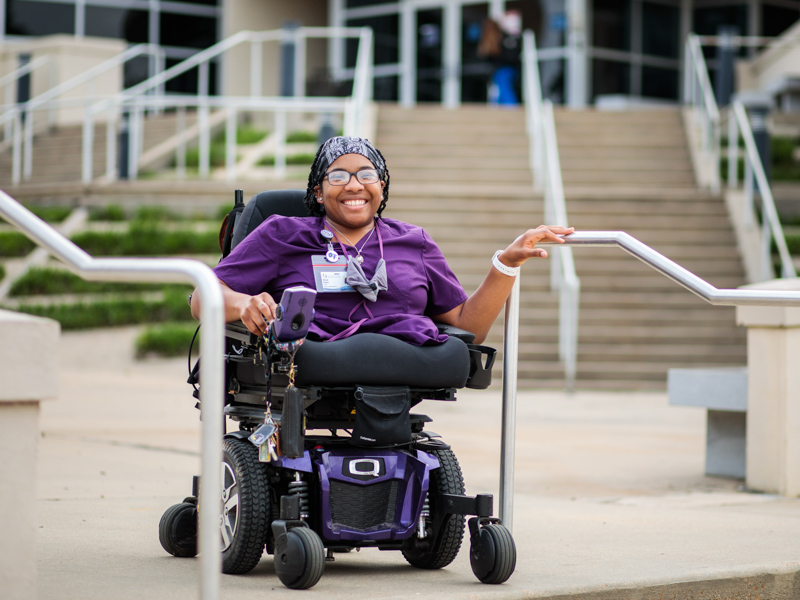Front and Center: Miracle Buckley

Editor's Note: In honor of Black History Month’s 2022 theme, Black Health and Wellness, we want to celebrate the contributions, breakthroughs and cultural richness of Black professionals and students at UMMC. See more Front and Center features.
As she wraps up her second full year of coursework in the doctor of occupational therapy program, Miracle Buckley is contemplating plans post degree.
She sees herself most fulfilled either working in a school system or in pediatrics, where the common denominator is children.
“I have a disability myself, so helping them become comfortable in their skin early is important to me,” she said.
If ever there were a name with meaning, it is Buckley’s; her doctor didn’t expect her to survive infancy.
Now 32, the Jackson native was born with sacral agenesis, a condition in which babies have incomplete spines, no hip pockets, and legs that, in her own words, “didn’t work at all.” At 7, she had them amputated, a decision she has never regretted.
She used prostheses for a while, but prefers a wheelchair for its ease of use.
Growing up, Buckley dreamed of becoming a concert pianist and made the rounds in competitions.
But that all changed one day when she observed an occupational therapist perform what seemed like a miracle with a young girl at a summer camp for children with disabilities, where Buckley had both attended and later worked.
When Buckley later asked the OT exactly what she did for a living, she was introduced to the field for the first time and has been “stuck on it since.”
She went on to earn an associate’s degree in OT from Holmes and a bachelor’s in kinesiology, with a minor in piano performance, from Mississippi College.
Now with a year to go before earning her degree, she is more certain than ever that she has made the right decision in both choosing OT as a career, and UMMC as the place to pursue it.
“I’m most surprised by how invested the professors are in their students,” Buckley said. “They genuinely care about the wellbeing and education of each student.”
Buckley, who lives alone, is also realizing some things about herself.
“I’ve learned how much patience I really have,” she said. “Certain situations have helped me grow and develop more patience that will be beneficial in the working community.”
She’s also learning to tackle challenges that are foreign to her classmates, the greatest of which is “thinking outside the box of my wheelchair. I can't do everything ‘normally’ like everyone else, so I have had to adapt."


